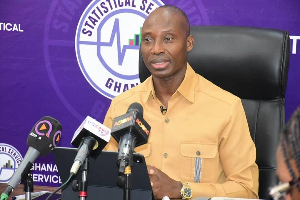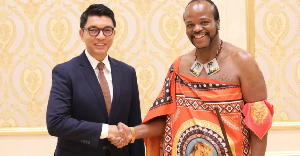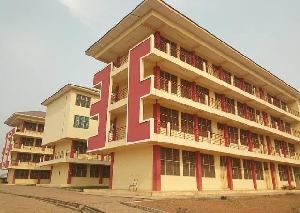... through quality educational assessment for national development.
Education constitutes a major ingredient in our quest to achieve our national development aspirations. Education in general term is simply seen as a form of learning in which the knowledge, skills, and habits of a group of people are transferred from one generation to the next through teaching, training, or research. Some scholars see education as an experience that has a formative effect on the way one thinks, feels, or acts.
According Dictionary.com, education is the act or process of imparting or acquiring general knowledge, developing powers of reasoning and judgment and generally of preparing oneself or others intellectually for mature life. Education is very important and vital to the development of any society. Ghana’s educational sector has had significant improvement over the years but there has been a growing concern recently by several Ghanaians about the product of our educational system. Such critics have argued that there is too much emphasis on academic subjects with little attention on vocational and technical education as well as science and ICT which are major ingredient for the building of a sound economy. Whilst I agree with such critics I would want to emphasis on our mode of assessing students and the judgment we pass on after such assessments.
It is an open secret that cumulative records and continues assessment have become redundant in our schools and so we only rely on the external exams from West African Examination Council (WAEC) at the basic and high school level. At the basic level, students are placed into senior high schools based on their performance in the Basic Education Certificate Examination (BECE) without considering their performance in the schools in which they spent over nine years. Those who do not do well are tagged as failures and are considered not deem for placement. What they do with their life is not the business of anybody and governments don’t care what happens to them. This is also repeated at the tertiary level where we prevented our talented and skillful youth from furthering their education because they had D7 in some subjects. What is annoying about this scenario is that our duty bearers today were given a form of education which was far better than ours. So if I do well in all reading subjects I am offering and get D7 in mathematics, does it mean I can’t perform in a reading programme at the university?
The classical nature of our educational system has failed us and the time has come for us to do a general overhauling where every one’s ability will be assessed well for proper placement. What we need to do is to adopt a practical and skills oriented educational system that can equip young people employable skills and empower them economically. For me, if we continue with the current way of assessing our students, then we may be losing a lot of human resource in our quest of meeting our developmental needs.
We must adopt an educational system that will create decent, safe and competitive employment opportunities for the youth after completion.
Our educational system must also stress on vocational and technical education, entrepreneurship and critical thinking which have potential of making our learners self employed after school.
According Min (1995), the economic competitiveness of a country depends on the skills of its work force. The skills and competencies of the work force, in turn, are dependent upon the quality of the country's education and training systems.Vocational education is perceived as one of the crucial elements in enhancing economic productivity.
Below is a caption of part of a speech read by Prof. J. Anamuah-Mensah, former Vice Chancellor, University of Education, Winneba at St. Francis Secondary Technical School, Akim Oda.
“We are aware of the acute lack of technical manpower with relevant skills in the economy even though this is a requirement for economic growth. We need to develop this base first through a well designed technical/vocational education and training system.
The question do we need only theoretical exams to get these human resourse?
As carried in the press release from Youth Alliance on African Youth day, there is the need for a one year apprenticeship programme for all Senior High School graduates before their tertiary education to equip them with practical skills that have the tendency of making them economically self sustained. In addition government must place BECE candidates who fail to get placement into apprenticeship programmes and provide support for their training.
This call has recently received a backing from the headmaster of St. Augustine’s College, Mr.Joseph Connel who called on institutions to engage SHS graduates in productive ventures. This story was carried on the 2nd November edition of the Daily Graphic.
In moving forward, the West African Examination Council (WAEC) must consider using other forms of assessing students at the basic level such as their capabilities in agriculture, sports, sewing, catering and recommend them for further studies in their areas of interest. This argument is supported with a quote from Albert Eintein who said
“Everybody is genius. But if you judge a fish by its ability to climb a tree, it will live its whole life believing that it is stupid.”
ALI TANTI ROBERT
YOUTH ALLIANCE FOR DEVELOPMENT, OBUASI
tantirobert@yahoo.co.uk
Opinions of Wednesday, 6 November 2013
Columnist: Robert, Ali Tanti














